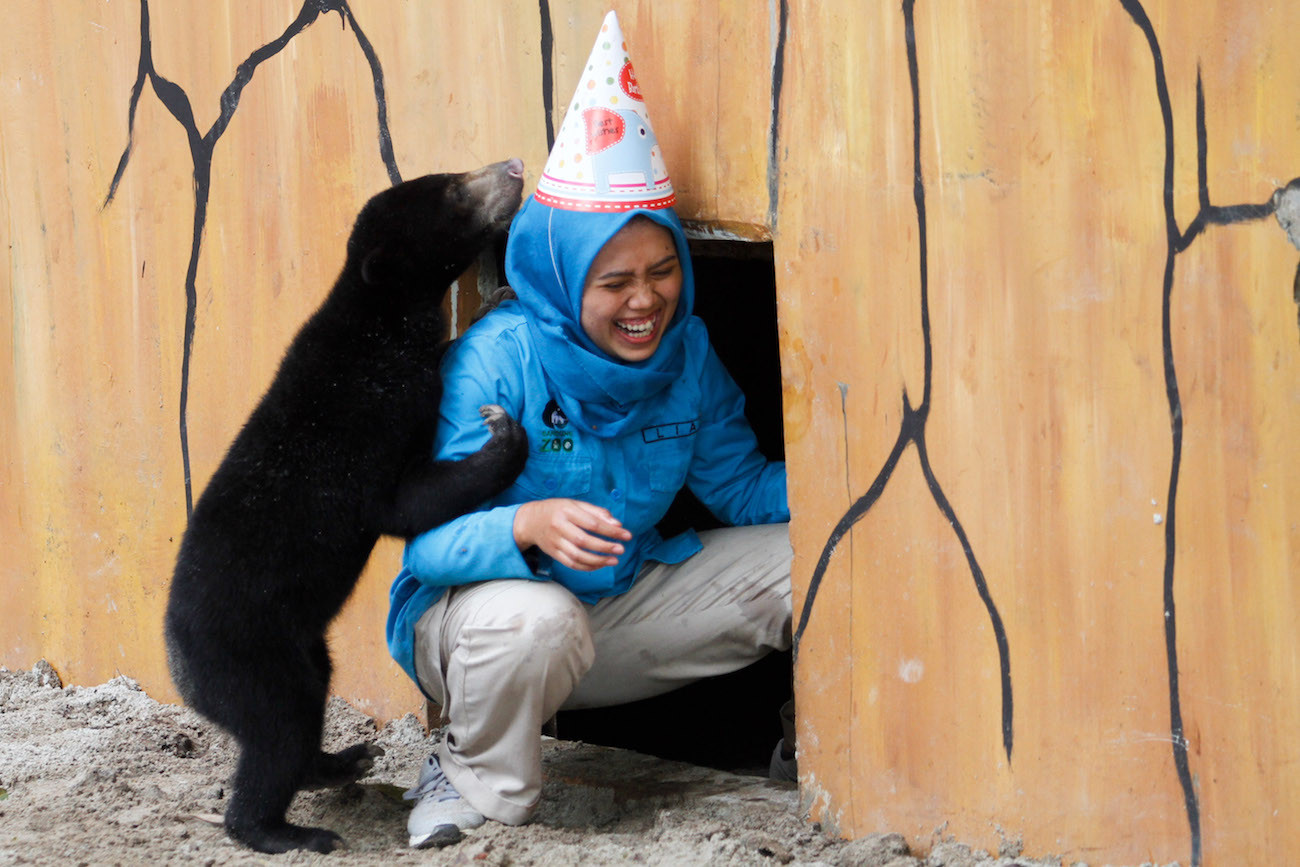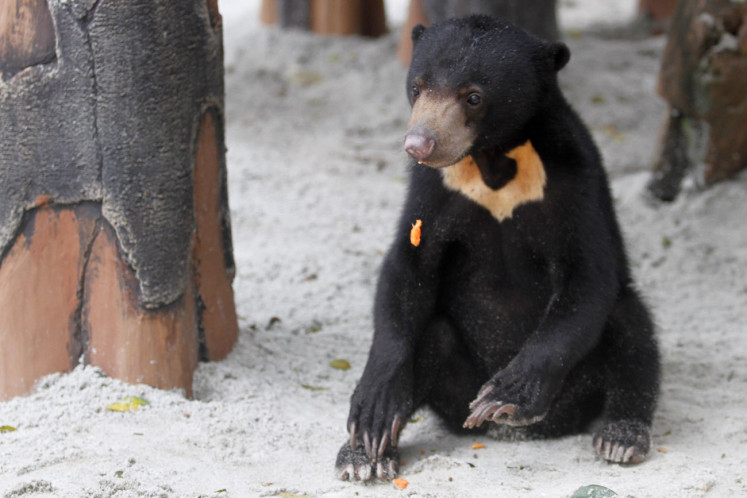Bandung Zoo celebrates sun bear's birthday to respond to public concern
The bear cub is the offspring of Kardit, a male sun bear that appeared in a viral video in which he appeared to be "skinny and begging for food".
Change text size
Gift Premium Articles
to Anyone
 Rika, a sunbear, hugs her caretaker, Lia Marlia, during the celebration of her first birthday on Sunday. (JP/Arya Dipa)
Rika, a sunbear, hugs her caretaker, Lia Marlia, during the celebration of her first birthday on Sunday. (JP/Arya Dipa)
B
andung Zoo in West Java has celebrated the first birthday of Rika, a one-year-old female sun bear, in its bid to respond to public doubt regarding the health and wellbeing of the zoo’s animals.
The zoo’s marketing communication officer Sulhan Syafi’i said on Sunday that Rika’s father, Kardit drew public attention in 2016 because the animal looked malnourished and appeared to beg for food from visitors in a viral video.
Sulhan said Rika was Kardit’s sixth offspring. “Kardit is old, but he is healthy,” he said.
During the celebration, animal caretaker Lia Marlia went into the sun bear enclosure carrying a message saying “Rika, Happy Birthday”. A number of gift boxes containing food were also placed in the enclosure.

The “party” was made even merrier with a busker singing a version of “Selamat Ulang Tahun” (Happy Birthday), popularized by rock band Jamrud.
Rika weighed 400 grams when she was born and is currently 25 kilograms.
A sun bear can weigh up to 65 kilograms, although it is the smallest of the eight bear species in the world.
“But its tongue is the longest,” the zoo’s veterinarian Josephine Bernadeth said, adding that a sun bear’s pregnancy lasted 96 days.
Sun bears are considered unique because of the yellow, white or orange markings on their chest. Often the marks form a semi circle shape like a sun.
In its natural habitat, the animal lives in Kalimantan, Sumatra, Indochina, Myanmar and the Malay Peninsula. Unlike polar bears and grizzly bears, sun bears do not hibernate.
Naturally, sun bears live in primary and secondary forests, usually in trees some two to seven meters from the ground. Damage to their habitat, field fragmentation and illegal hunting have threatened their existence in the wild.
The International Union for Conservation Nature (IUCN) puts sunbears on the red list with a status of vulnerable, four steps away from extinction.
Sulhan said Rika was proof the animal could be successfully bred outside of its natural habitat.
“We also continue sun bear exchanges to prevent incest so as not to disturb their existence,” he said, adding that in September the zoo gave a bear to a conservation institution in Surakarta, Central Java.









